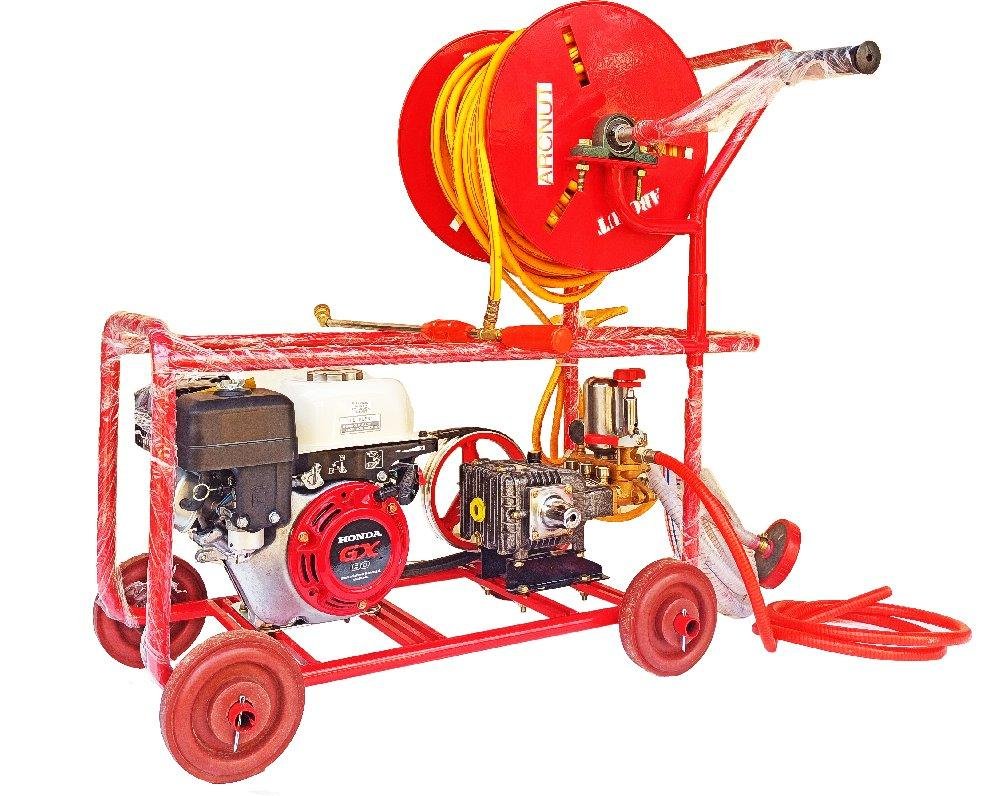Spray pumps in agriculture are among the necessary tools for modern farming integrated biological and other controls such as pest, weed, and fertilizer application. These effectively transport different liquids to the crops, to enable proper growth and production.
Agriculture spray pumps are categorized according to the nature of their functionality into the following categories;
There are several types of agriculture spray pumps, each designed for specific applications and requirements:
- Hand Pumps: Unlike the electric and foot pumps, the hand pumps are manually operated, can be used for small scale farming. They are suitable for use on small surfaces and need manual work to be done by the user.
- Power Sprayers: The power sprayers which are self-propelled by internal combustion engines and electric motors are more suitable to large areas. They provide higher pressure and flow rates making it easier and efficient to spray within the set design.
- Mist Blowers: Mist blowers were developed for aerial spraying, and the construction of a fine mist which, by the force of the wind, will distribute itself out over the crop. They are usually applied in making large scale plantations and orchards.
- Ultra-Low Volume (ULV) Sprayers: ULV sprayers dispense a very limited amount of liquid solution; they may be in combination with something like oil or water. They are good for fixing pest and diseases problems with less harm done to the environment.
Explaining Key Components of Agriculture Spray Pumps
- Pump: The pump is central to the sprayer by developing pressure to push the liquid through to the nozzle.
- Tank: The tank is used to holds the liquid that needs to be sprayed.
- Nozzle: The nozzle determines the direction of pattern to be sprayed and, size of droplet to be formed.
- Filters: This guarantees that the flow of the system is not hindered, thus the use of filters.
- Hose: The hose Institute the liquid from the pump to the nozzle.
- Pressure Gauge: The pressure gauge informs the pressure level of the system.
Advantages of Using Agriculture Spray Pumps
- Efficient Pest Control: Spray pumps enable farmers in the management of pest and diseases hence reducing crop damage.
- Improved Weed Management: Spray pumps used in the wetting of plants reduces the probabilities of excess herbicides affecting the crops as well as handling the weed control in the best way possible.
- Effective Fertilizer Application: Spray pumps ensure even spreading of fertilizers on plants to ensure that the plants use the nutrients effectively.
- Time and Labor Savings: Spray pumps also save a lot of time and effort used in agriculture as compared to using hand methods in agriculture.
- Increased Yield and Quality: In eliminating the pest, weeds and nutrient deficient plants, the spray pumps aid in increasing crop yields and quality.
Choosing the Right Spray Pump
Selecting the appropriate spray pump depends on various factors, including:
- Farm Size: Large plantations may need more effective and strong spraying equipment than small plantations.
- Crop Type: Each crop requires a different spraying regime.
- Pest and Disease Pressure: The extent to which pest and diseases affect the plants will define the volume and pressure needed for spraying.
- Budget: The cost of the sprayer pump should be taken as one of the costs that annexes farming.
With the appropriate agriculture spray pump, productivity can be improved, the produce preserved and all within the best framework of sustainable farming.




